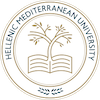Division of Electrical Energy Systems
The Division focuses mainly on scientific areas and topics such as:
Production facilities; electricity transmission, conversion, protection, and distribution networks, including their machinery, devices and components; as well as facilities relating to electricity, electric motors, power electronics, lighting, electricity storage and their applications. Electricity financial management methods, the operation of regulated or non-regulated electricity markets, electronic installations of weak currents, microelectronic and nanoelectronic materials, elements, and devices, are also included, along with electric and magnetic fields and applications, and power stations with renewable energy sources.
It is comprised by a total of 11 Teaching and Research Staff members and 1 Special Technical Laboratory Staff member.
Division of Electronics, Systems and Computer Technology
The scientific field of “Electronics, Systems, and Computer Technology” covers the broader field of electrical circuits and measurements, electronic devices and circuits, signal processing, automated control systems, as well as hardware and software computer systems. It is comprised by a total of 12 Teaching and Research Staff members and 1 Special Technical Laboratory Staff member.
The more specialized scientific fields in Electrical and Computer Engineering supported by the Department of “Electronics, Systems, and Computer Technology” include:
- Circuit theory, electrical measurements, electronic installations of weak currents, sensors, analysis/design/construction of electrical and electronic circuits using a computer.
- Electronics, logical design, integrated circuits, advanced electronic devices, microelectronic and nanoelectronic materials/elements/devices.
- Analog & digital signals and systems, voice & video encoding and processing, artificial vision.
- Dynamic systems, linear and non-linear automatic control, algebraic control theory, industrial control and automation systems, integrated control systems, robotics, mechatronics.
- Integrated systems, cyber-physical systems, industrial IoT, measurement and data reception systems.
- Optoelectronic devices and systems, technology and laser applications.
- Biomedical technology, bioengineering, and biomedical informatics..
- Intelligent systems, artificial intelligence, pattern recognition, machine learning.
- Computer systems, computer organization, computer and peripheral architecture, microprocessor applications.
- System software, computer systems security, operating systems.
Division of Telecommunications and Information Technology
The goal of this Division is the advancement of science and technologies related to Informatics and Telecommunications as well as the creation of high quality Engineers through teaching and research. It will provide them with all necessary ethical and technological skills that will enable them to successfully participate in postgraduate programmes, support the design and implementation of IT and Telecommunications projects, and monitor developments in these constantly evolving fields. The Sector is comprised by members with background on Software and Network Engineering, in the field of Informatics, classic Computer Science subjects and the physical Level of Telecommunications.
The academic courses and specialisation offered by the Department focus on the following topics:
– Computer Science
– Software Engineering
– Information Systems Design and Development
– Artificial Intelligence
– Machine Learning
– Semantic Web
– Web Application Programming
– Collaborative Tools
– Social Networks
– Multimedia and Graphics
– Virtual and Augmented Reality
– Game Development
– Pervasive, Ubiquitous, and Physical Computing
– Computer Networks
– Sensor Networking
– Telecommunications
– Electromagnetic Compatibility
